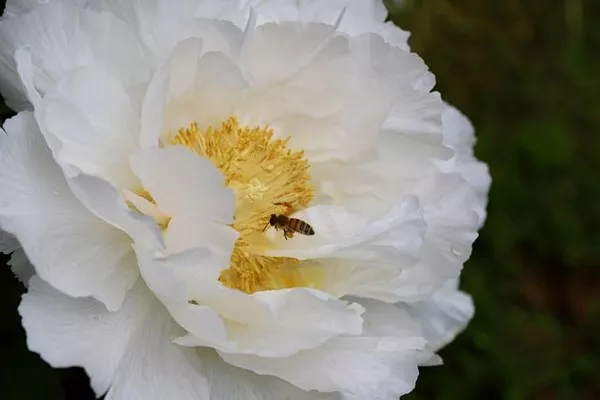A recent study from the Netherlands reveals a significant decline in plant species reliant on insect pollination, raising concerns for biodiversity and food security. Conducted by ecologist Kaixuan Pan, a doctoral student at Leiden University, the study spans nearly 90 years of data and underscores the urgent need for conservation efforts.
Insect pollination plays a vital role in the reproduction of numerous plant species, but the study highlights a worrisome trend: a marked decrease in the diversity of insect-pollinated plants over the decades. This decline poses a direct threat to both natural ecosystems and agricultural productivity.
“The proportion of insect-pollinated plants has decreased while that of wind-pollinated plants has increased,” notes Pan, emphasizing the shift in plant composition. This shift is particularly concerning given that a substantial portion of both wild and cultivated crops in the Netherlands rely on insect pollination for reproduction.
The loss of insect-pollinated species not only diminishes plant biodiversity but also disrupts crucial ecological processes. Pan’s previous research indicates that 22% of insect-pollinated plants have already become extinct between 1930 and 2017, primarily due to the combined effects of climate change and intensive agriculture.
“Without these plants, the availability of seeds and fruit for birds and other animals will significantly decrease, leading to a decline in overall biodiversity,” Pan warns, highlighting the cascading impact of plant extinctions on ecosystems.
To understand the underlying causes of this decline, Pan and his team analyzed extensive datasets spanning various environmental factors and plant-insect interactions over nearly nine decades. Their findings suggest that the loss of insect-pollinated plants is closely linked to declines in pollinator populations, rather than solely attributable to factors such as moisture or nitrogen levels.
Efforts to reverse this trend require collaborative action from both policymakers and the public. Pan and his colleagues propose measures such as reducing nitrogen pollution and protecting natural grasslands, which serve as vital habitats for many insect-pollinated plant species.
“Involving local communities in monitoring plant and insect diversity is crucial for implementing effective conservation strategies,” highlights environmental biologist Koos Biesmeijer, emphasizing the importance of ongoing surveillance to assess the effectiveness of conservation measures.
As the decline in insect-pollinated plants jeopardizes ecosystems and agricultural sustainability, proactive conservation efforts are essential to safeguarding biodiversity and securing the future of pollinator-dependent plant species.


